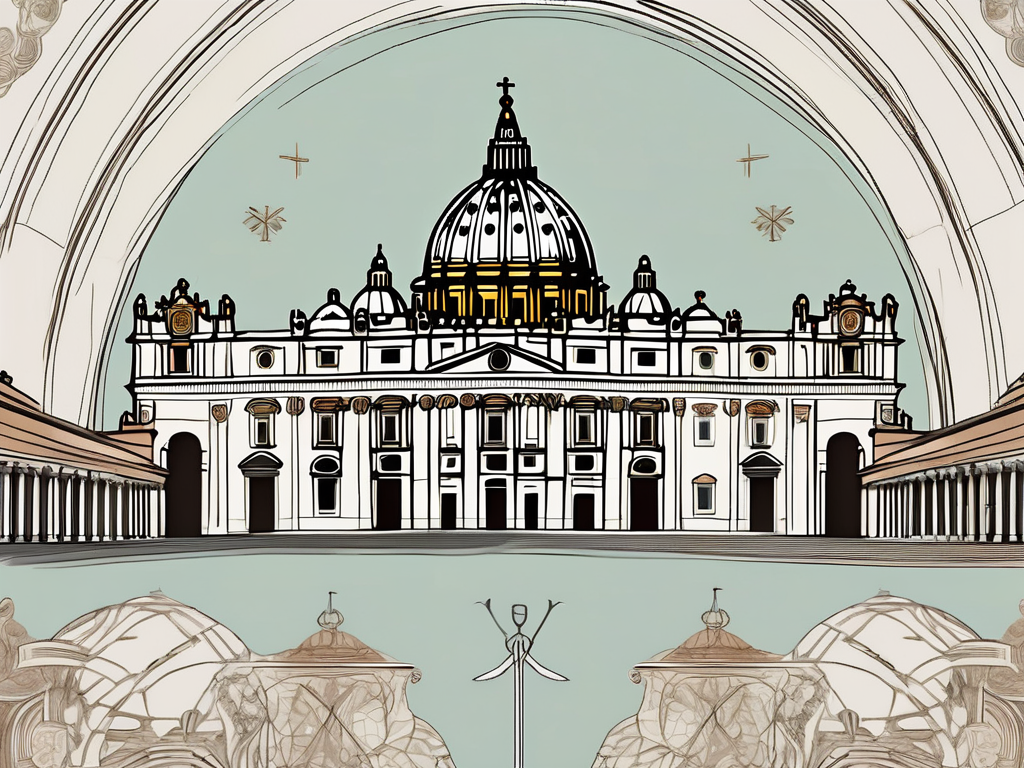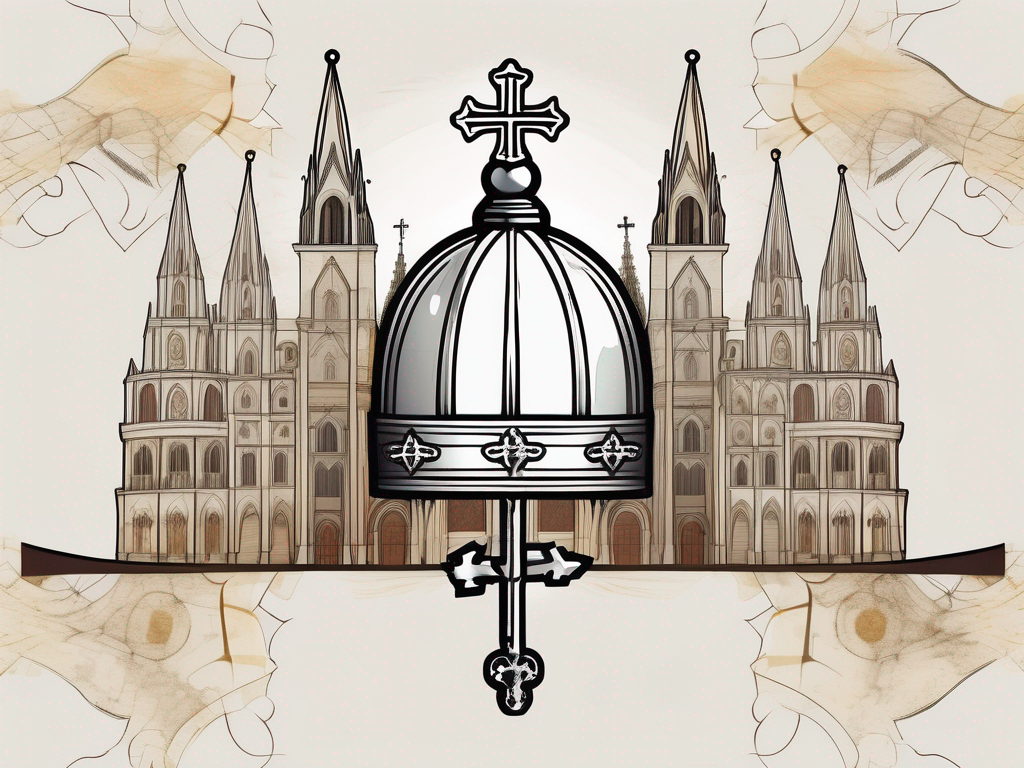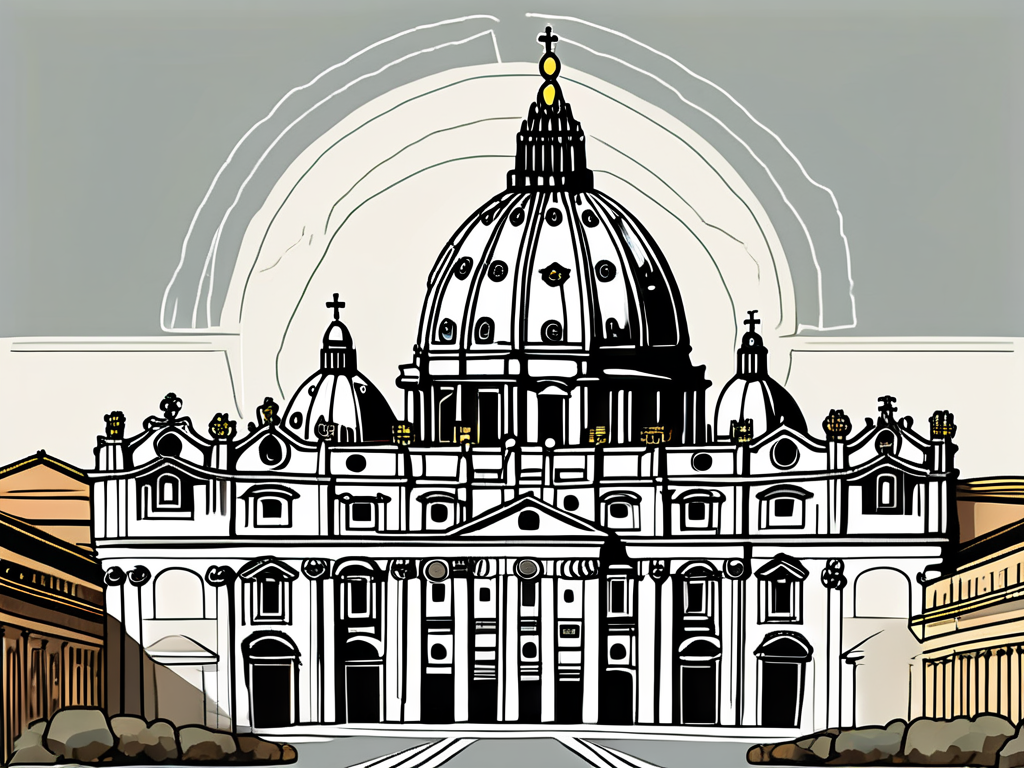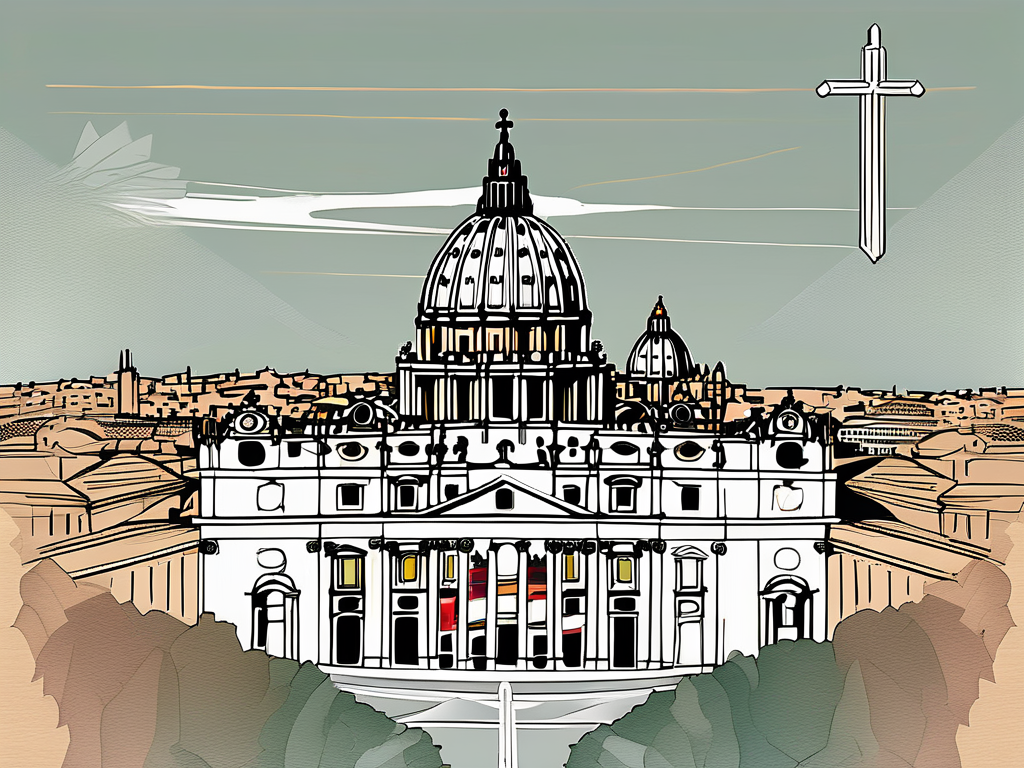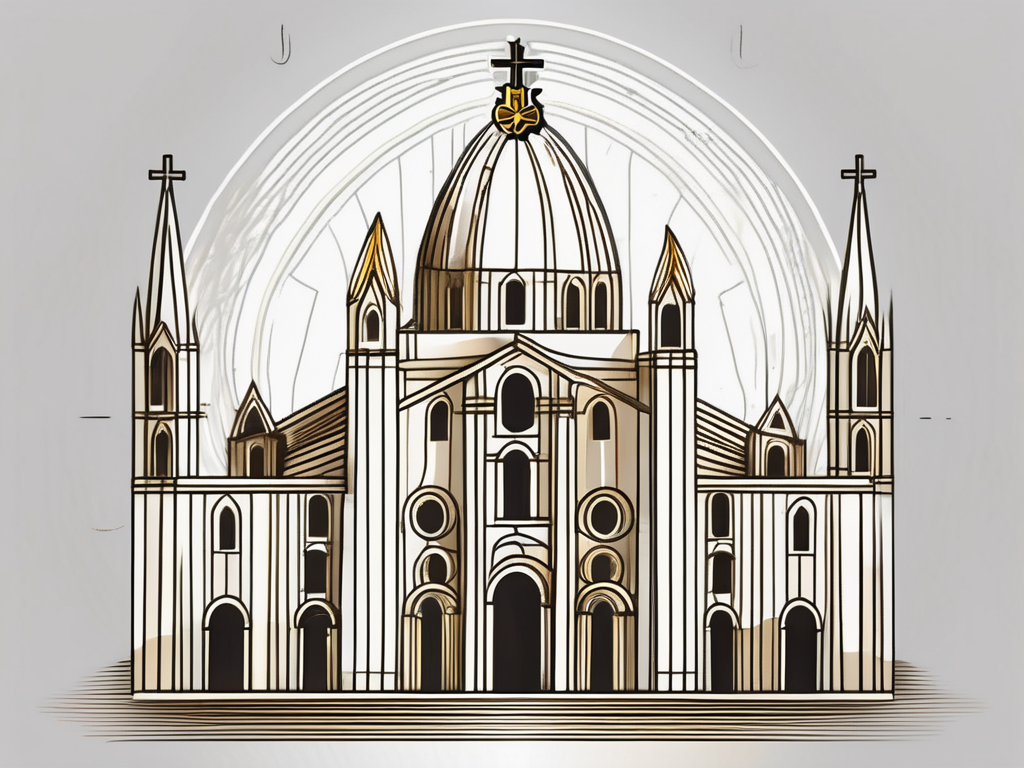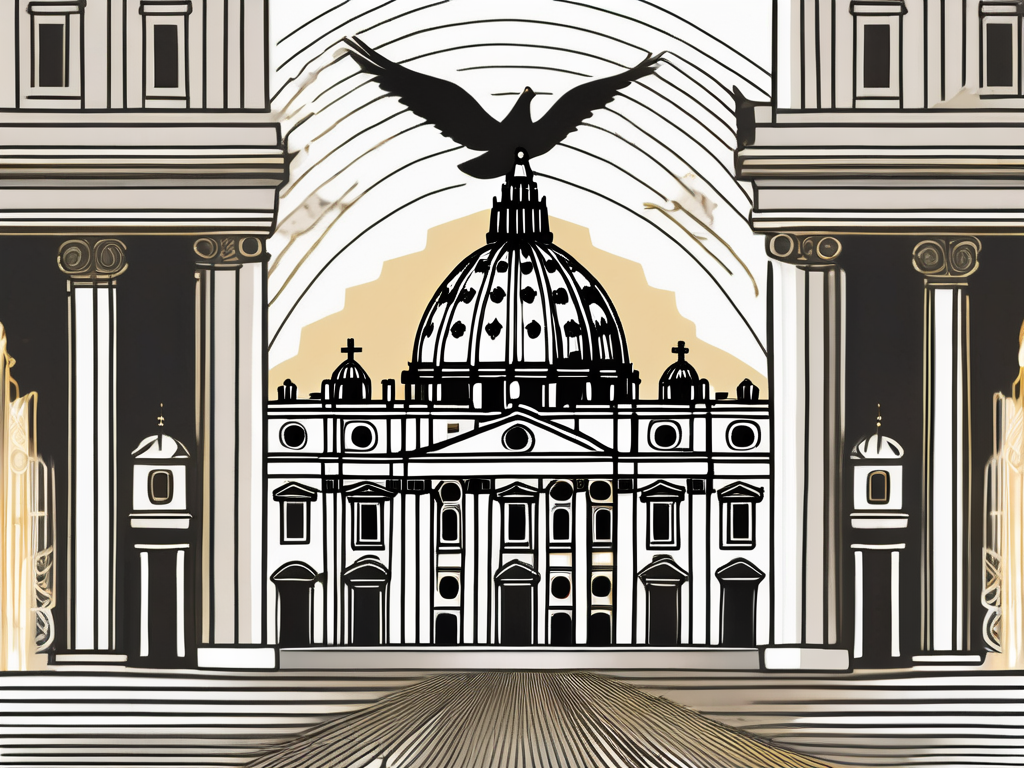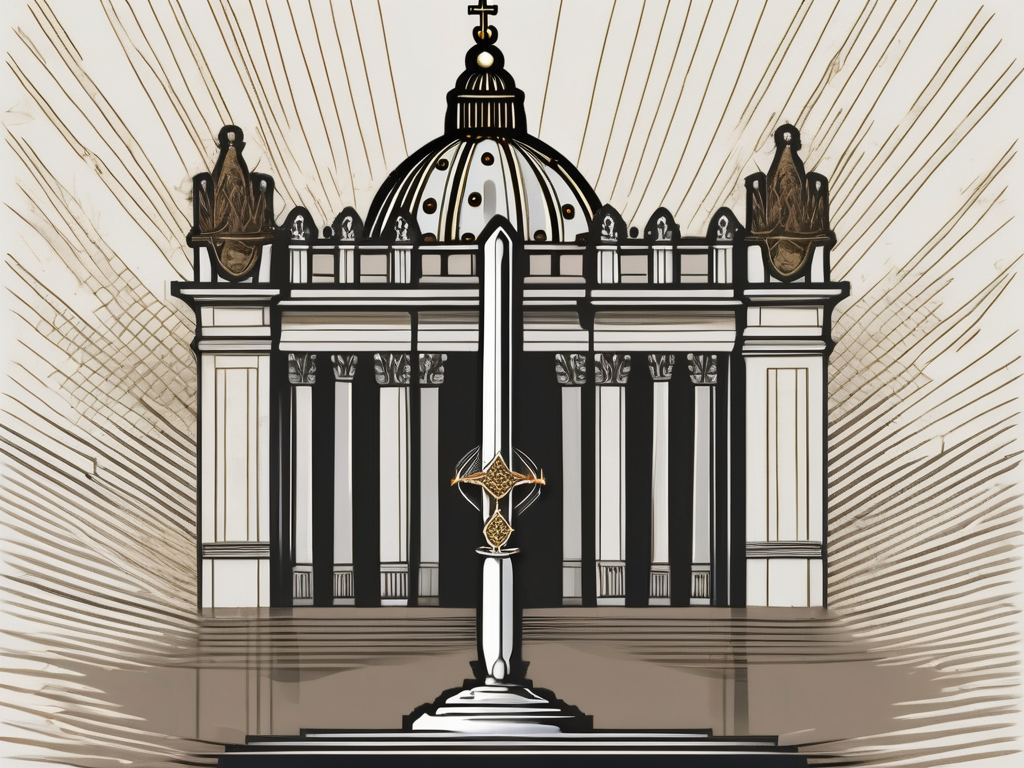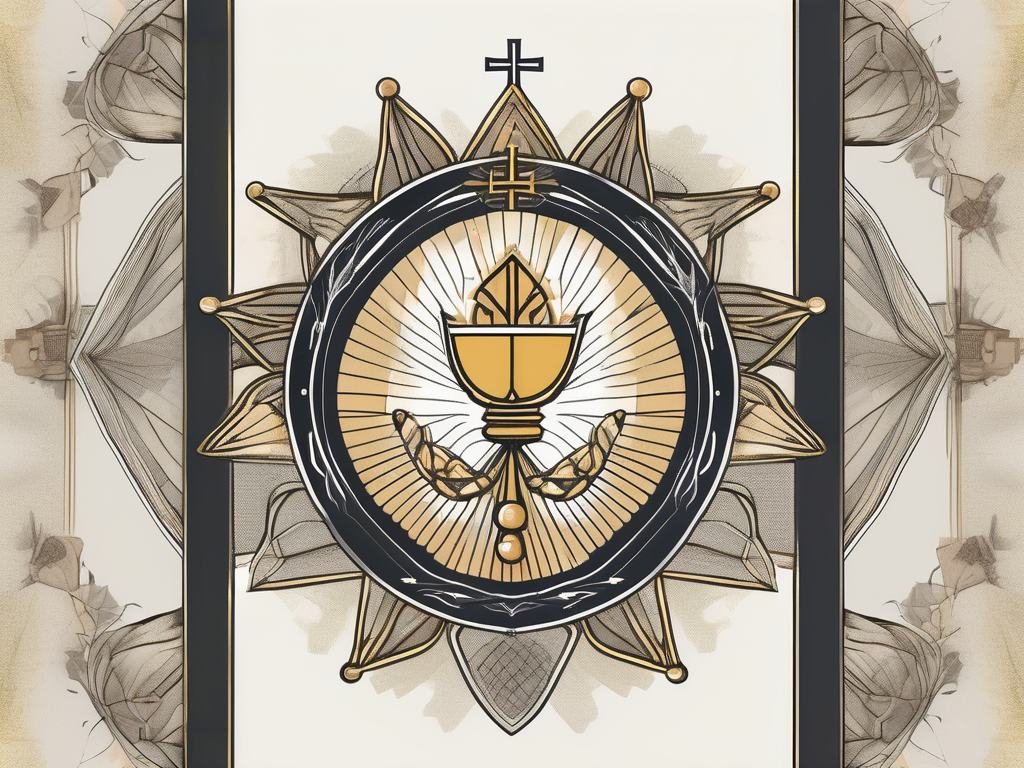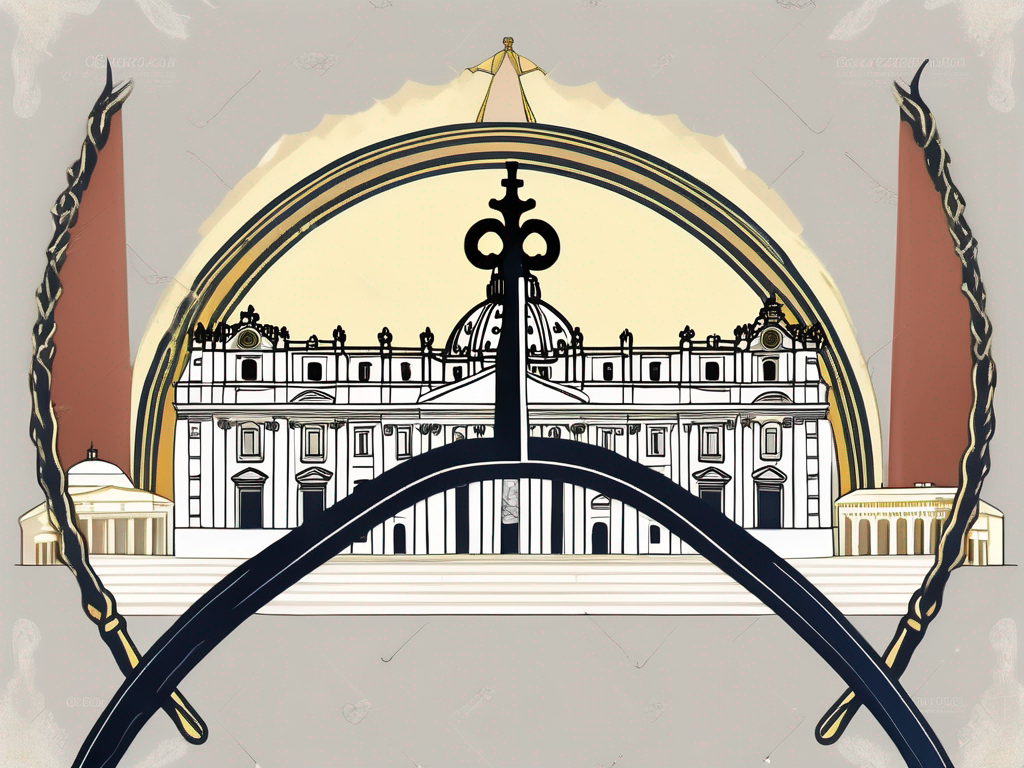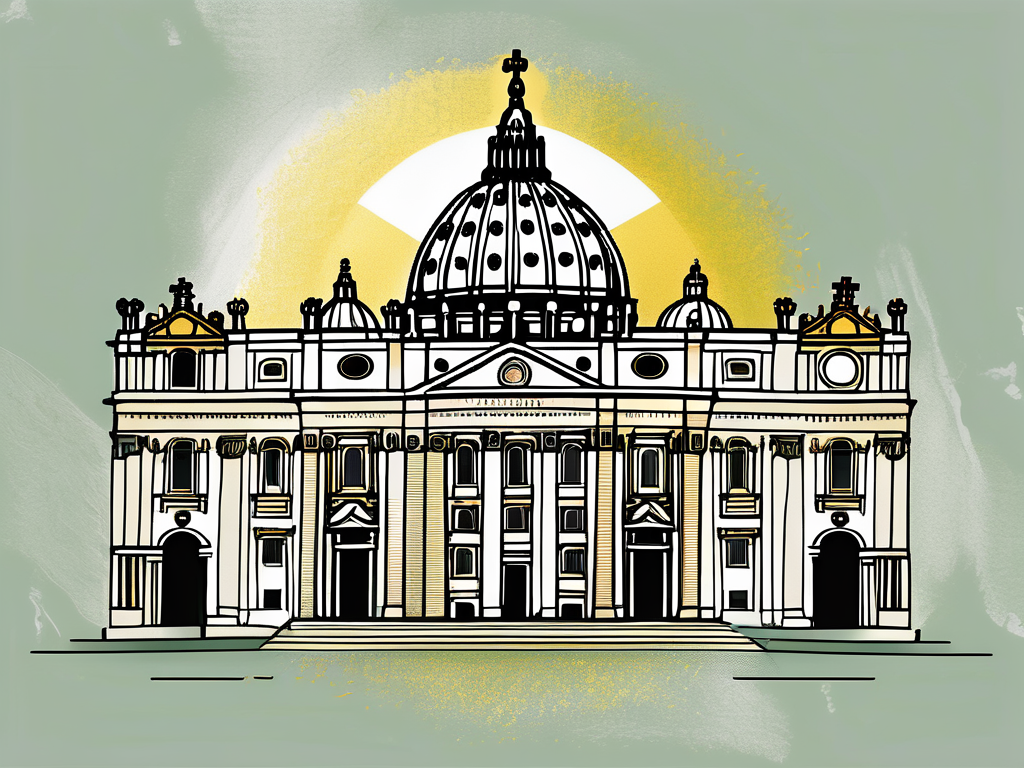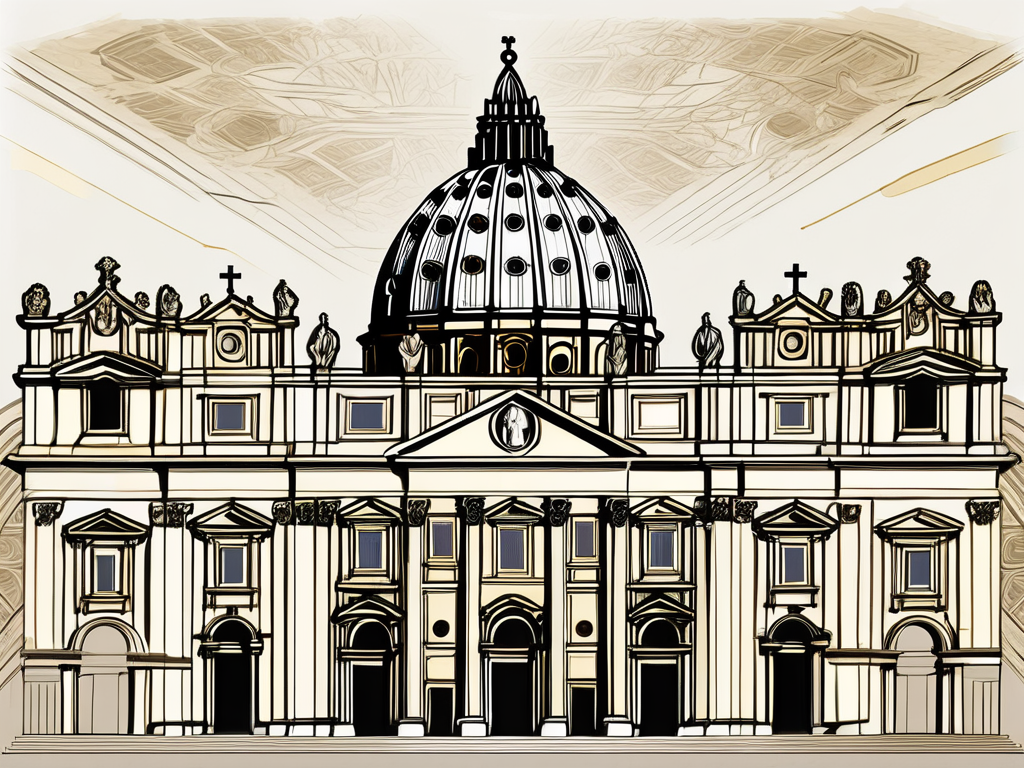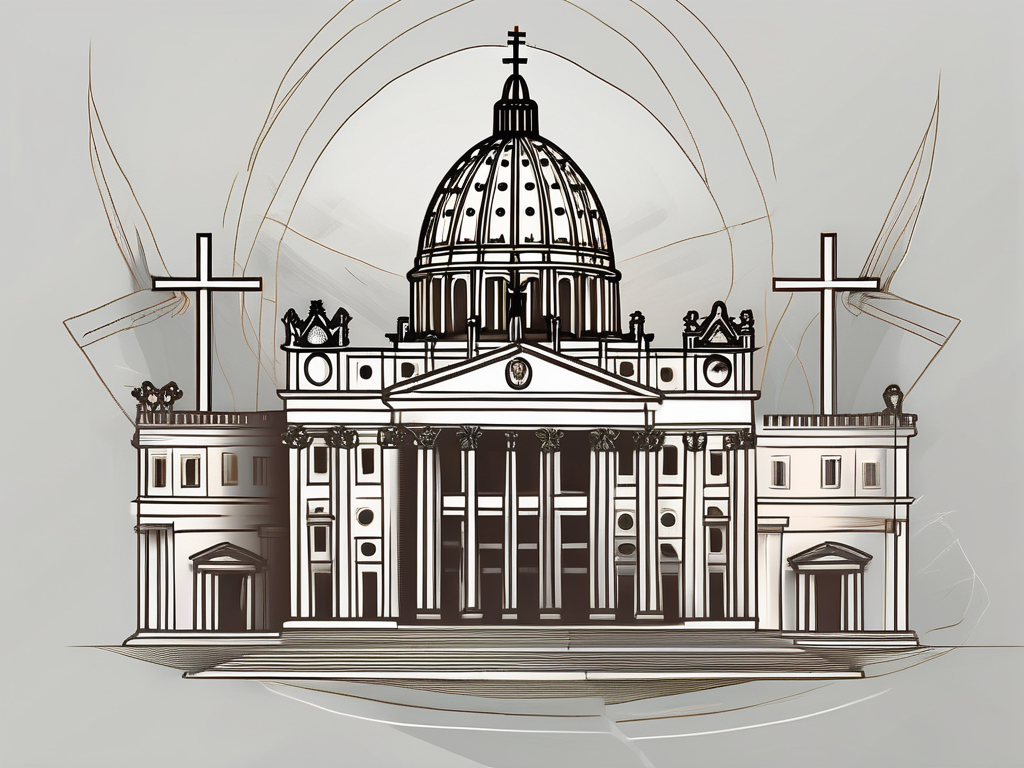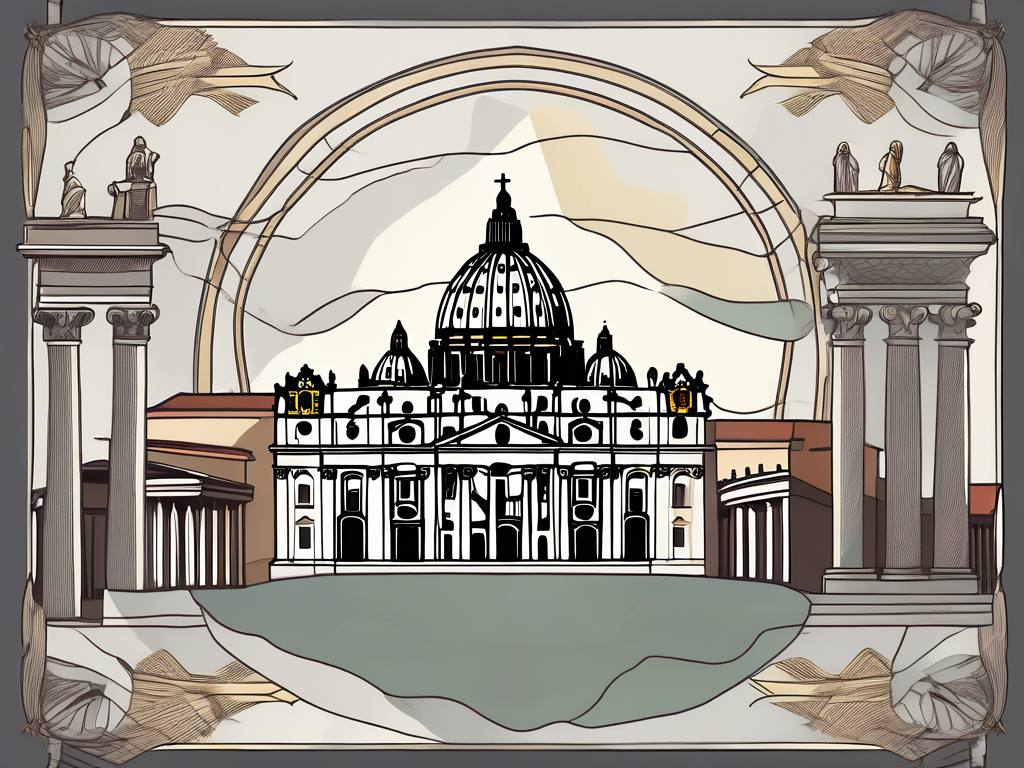Pope Lucius III, born as Ubaldo Allucingoli, was a prominent figure in the history of the Catholic Church. From his early life and education to his remarkable contributions to theology and canon law, his papacy left an indelible mark on the church. However, it was not without its fair share of controversies and criticisms. Let’s delve into the life and legacy of Pope Lucius III.
Early Life and Education of Pope Lucius III
Pope Lucius III’s journey began with his family background and childhood, which played a crucial role in shaping his character and beliefs. Born into a noble Italian family, Ubaldo Allucingoli grew up surrounded by privilege and influence. His early years were marked by a strong sense of faith and devotion.
Ubaldo’s religious education further nurtured his spiritual inclinations. As a young boy, he received a comprehensive education focused on theology and philosophy. These formative years laid the foundation for his future role as a spiritual leader.
The Allucingoli family, known for their deep-rooted Catholic faith, provided a nurturing environment for Ubaldo’s religious development. From a young age, he was exposed to the rich traditions and rituals of the Catholic Church. His parents, devout followers themselves, instilled in him a profound reverence for God and a commitment to serving others.
Ubaldo’s education, guided by renowned theologians and philosophers, was rigorous and intellectually stimulating. He immersed himself in the study of scripture, delving into the complexities of Christian doctrine and exploring the writings of influential theologians such as St. Augustine and St. Thomas Aquinas.
His thirst for knowledge led him to engage in lively debates and discussions with his peers, fostering a deep understanding of the intricacies of theology. Ubaldo’s intellectual curiosity and passion for learning propelled him to excel academically, earning him recognition as a promising scholar.
Outside the confines of the classroom, Ubaldo found solace and inspiration in the natural beauty of his surroundings. The picturesque landscapes of his family’s estate provided a tranquil backdrop for reflection and contemplation. It was during these moments of solitude that Ubaldo’s connection with the divine deepened, fueling his desire to dedicate his life to the service of God.
As Ubaldo matured into adolescence, his unwavering commitment to his faith became increasingly evident. He actively participated in religious ceremonies and took on various roles within the local church community. His genuine compassion for others and his willingness to lend a helping hand to those in need earned him the respect and admiration of his peers.
Ubaldo’s spiritual journey was not without its challenges. He faced moments of doubt and uncertainty, grappling with complex theological questions and wrestling with his own beliefs. However, these struggles only served to strengthen his faith and deepen his commitment to his vocation.
With each passing year, Ubaldo’s reputation as a devout and knowledgeable young man grew. His dedication to his studies and his unwavering faith caught the attention of influential figures within the Catholic Church, setting the stage for his future as Pope Lucius III.
Ascension to Papacy
Election and coronation as the Pope are pivotal moments in the life of any individual, and Pope Lucius III’s path to the papacy was no exception. In a time when the church faced numerous challenges, his selection brought new hope to the faithful.
Election and Coronation
In the year 1181, following the death of Pope Alexander III, Ubaldo Allucingoli was elected as the 171st Pope of the Roman Catholic Church. The coronation ceremony was a grand affair, attended by dignitaries from all corners of the Christian world.
The streets of Rome were adorned with vibrant banners and colorful tapestries, as the city prepared to welcome its new spiritual leader. The sound of trumpets filled the air, announcing the arrival of Pope Lucius III. The crowd erupted in cheers and applause, their voices echoing through the ancient streets.
As he ascended the steps of St. Peter’s Basilica, Pope Lucius III was greeted by cardinals and bishops, their robes flowing in the gentle breeze. The ceremony began with a solemn procession, as the clergy made their way towards the altar, carrying the symbols of papal authority.
The momentous occasion was marked by the chanting of hymns and the recitation of prayers, as the newly elected Pope knelt before the altar. With reverence and humility, he accepted the weighty responsibility that had been placed upon his shoulders.
Challenges Faced in the Early Years of Papacy
Pope Lucius III faced numerous challenges as he assumed the papal seat. The church was grappling with a resurgence of heresy, and it was during his papacy that the Inquisition was established to combat this growing threat.
The Inquisition, a powerful and controversial institution, was tasked with identifying and eradicating heretical beliefs within the Christian community. Pope Lucius III recognized the importance of preserving the purity of the faith and took decisive action to ensure its survival.
Under his guidance, the Inquisition conducted rigorous investigations, employing various methods to uncover heresy. The accused were subjected to intense questioning, often lasting for hours, as the inquisitors sought to extract confessions and root out any dissenting beliefs.
Additionally, Lucius faced significant opposition from secular powers, most notably the Holy Roman Empire. This strained relationship resulted in clashes and disputes that would become defining moments in his papacy.
The Holy Roman Empire, under the rule of Emperor Frederick Barbarossa, sought to exert its influence over the papacy, challenging the authority and independence of the Church. Pope Lucius III, however, remained steadfast in his commitment to the spiritual sovereignty of the Roman Catholic Church.
Amidst these challenges, Pope Lucius III tirelessly worked to strengthen the church and restore its moral authority. He implemented reforms aimed at promoting discipline and piety among the clergy, while also fostering a deeper connection between the church and its followers.
His efforts were not in vain, as the faithful looked to him as a beacon of hope and guidance during tumultuous times. Pope Lucius III’s unwavering dedication to the church and his steadfast leadership would leave a lasting impact on the Roman Catholic Church.
Significant Papal Decrees and Actions
During his time as Pope, Lucius issued several significant decrees and took notable actions that shaped the course of the Catholic Church. His unwavering stance on heresy and the establishment of the Inquisition remain among his most renowned contributions.
Stance on Heresy and the Inquisition
Pope Lucius III saw heresy as a grave threat to the church’s unity and orthodoxy. In response, he issued decrees and established the Inquisition to uncover and eradicate heretical beliefs. This controversial move was met with mixed reactions but served its purpose in preserving the church’s integrity.
Under Lucius III’s leadership, the Inquisition became a powerful tool in combating heresy. The Inquisitors, appointed by the Pope, were given the authority to investigate and prosecute individuals suspected of deviating from the established doctrines of the Catholic Church. They were granted wide-ranging powers, including the ability to arrest, interrogate, and even execute those found guilty of heresy.
The establishment of the Inquisition brought about significant changes in the religious landscape of Europe. It instilled fear among those who held unorthodox beliefs, forcing them to either recant or face severe consequences. The Inquisitors, driven by their unwavering loyalty to the Pope, diligently carried out their duties, ensuring the purity of the Catholic faith.
However, the Inquisition also faced criticism from those who believed it was a tool of oppression and intolerance. Many argued that it infringed upon individual freedoms and stifled intellectual discourse. Despite the controversy surrounding the Inquisition, Pope Lucius III remained steadfast in his belief that it was necessary to protect the church from the dangers of heresy.
Diplomatic Relations and Treaties
Lucius was not only a spiritual leader but also an adept diplomat. He recognized the importance of maintaining strong diplomatic relations among various Christian kingdoms and worked tirelessly to foster peace across Europe.
Through his diplomatic efforts, Lucius III sought to bridge the divides that had plagued the Christian world. He engaged in negotiations, mediations, and peace treaties, aiming to resolve conflicts and promote unity among warring factions. His dedication to diplomacy earned him respect and admiration from both secular rulers and religious leaders.
One of Lucius III’s most notable achievements was the signing of treaties that not only secured the church’s interests but also promoted unity and stability in the region. These treaties established alliances and agreements that brought about lasting peace and cooperation among Christian nations.
Lucius III’s diplomatic skills were instrumental in resolving disputes and preventing further bloodshed. His ability to navigate complex political landscapes and build bridges between rival factions contributed to the overall stability of Europe during his papacy.
Furthermore, Lucius III’s diplomatic efforts extended beyond the Christian world. He actively engaged with leaders of non-Christian nations, seeking to establish peaceful relations and promote interfaith dialogue. His commitment to fostering understanding and cooperation among different religious communities left a lasting impact on the global stage.
In conclusion, Pope Lucius III’s significant decrees and actions during his papacy had a profound impact on the Catholic Church and the world at large. His unwavering stance on heresy and the establishment of the Inquisition aimed to preserve the church’s integrity, while his diplomatic skills fostered peace and unity among Christian nations. Lucius III’s legacy as a Pope of conviction and diplomacy continues to be remembered and studied to this day.
Contributions to Theology and Canon Law
Pope Lucius III’s legacy extends beyond his papal decrees and actions. His contributions to theology and canon law had a lasting impact on the Catholic Church and its governance.
Writings and Teachings
Throughout his papacy, Lucius wrote extensively on various theological topics, leaving behind a substantial body of work. His teachings elucidated the doctrines of the church and shed light on complex theological concepts, enriching the faith of believers.
Reforms in Church Law
Lucius also spearheaded reforms in church law, aiming to streamline and strengthen the governance of the church. His efforts resulted in the compilation and codification of canon law, providing a comprehensive framework for ecclesiastical matters.
Controversies and Criticisms
Like many influential figures, Pope Lucius III was not exempt from controversy and criticism. His papacy was marred by disputes and accusations that challenged his authority and tarnished his reputation.
Disputes with the Holy Roman Empire
The Holy Roman Empire, under the leadership of Emperor Frederick Barbarossa, often clashed with Lucius on matters of jurisdiction and power. These disputes strained the relationship between the papacy and the empire and resulted in a prolonged power struggle.
Accusations of Nepotism
Another contentious issue that plagued Lucius was the accusation of nepotism. Critics argued that he favored his relatives when appointing them to influential positions within the church. These allegations cast a shadow over his papacy and fueled further controversies.
A Lasting Legacy
Pope Lucius III’s papacy left an enduring impact on the Catholic Church. His unwavering commitment to combating heresy, promoting diplomatic relations, and advancing theology and canon law made him a significant figure in the church’s history.
Though controversies and criticisms may have clouded his legacy, his contributions continue to shape the faith and governance of the Catholic Church. Pope Lucius III’s life and papacy serve as a testament to the complexities and challenges faced by spiritual leaders, ultimately leaving a lasting imprint on the church and its believers.
